Iran Regime Summons Tens Of Labor Activists Ahead Of May Day

At least 50 labor activists in Tehran, Kordestan and Gilan provinces have been summoned on the eve of International Workers Day.

At least 50 labor activists in Tehran, Kordestan and Gilan provinces have been summoned on the eve of International Workers Day.
Pressure increased on teacher and worker union activists ahead of International Workers Day, but rallies took place in Tehran and other cities mostly by retired workers.
Security agents have warned labor activists they are forbidden from attending May Day gatherings on Monday.
The Free Union of Iranian Workers announced that two members of its board of directors, were threatened and interrogated by intelligence agencies.
According to Hengaw Kurdish-Iranian human rights monitoring group, at least eight other labor activists have been summoned in the Western Kurdish city of Sanandaj.
The summons issued while calls for holding a rally to commemorate May Day have been published by the labor activists.
Meanwhile, the Writers' Association of Iran has called for the unconditional release of all labor activists, including Keyvan Mohtadi and other political prisoners.
The Council of Retirees of Iran also published a statement to slam the economic policies of the regime which have “destroyed the life of workers”.
On the eve of the international day of protests, the Central Council of Iran's National Front released a statement claiming “Iranian workers are increasingly under economic pressures facing the most severe livelihood problems”.
On Sunday, a group of 15 trade unions and civil rights groups issued a statement on the eve of International Workers' Day to voice support for the ongoing protests and strikes in Iran.
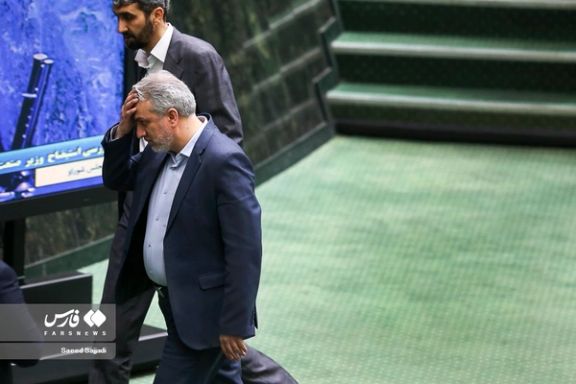
Although Iran’s Industry Minister Reza Fatemi-Amin was impeached by parliament on Sunday, few believe that it can be a remedy for Iran’s ailing economy.
Jalil Rahimi Jahanabadi told Rouydad24 news website: "Every one of Raisi's ministers we have dismissed has been replaced by someone even weaker." He predicted that someone several times lower in rank than Fatemi-Amin will become the next minister of industry.
Jahanabadi reiterated that it is highly unlikely the next minister would be more experienced, having better plans or being more capable than his predecessor in any other way. He also argued that Fatemi-Amin was a victim of the government's unclear policies.
Without naming Supreme Leader Ali Khamenei, who usually makes all key decisions without being accountable for them, Jahanabadi charged that those policies are often made by those whose positions are beyond the government's control.
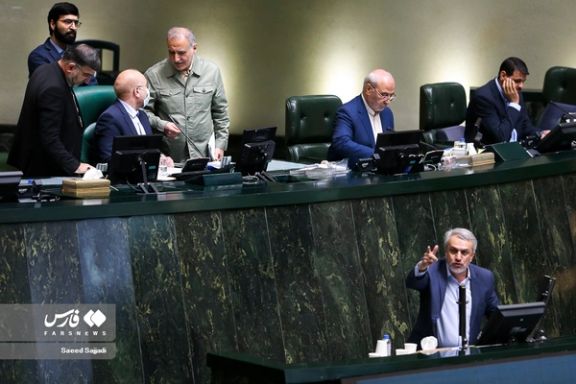
He said: "A thousand presidents like Raisi and a thousand ministers such as Fatemi-Amin will become the victim of those policies as long as the country's strategic policies are not determined."
Jahanabadi said even more pessimistically that a new minister will take office, change all of the ministry's deputies and major managers and before he can control the affairs of the ministry, he will have to be impeached for similar reasons.
Lawmaker for Tabriz, Ahmad Alirezabeigi who had initially charged the former minister with giving 75 SUVs to parliamentarians to avert a previous impeachment motion, said after Fatemi-Amin's dismissal that he has given 147 cars to the lawmakers. Alirezabeigi told Didban Iran website that he has presented evidence supporting his claim to the Public Prosecutor's Office.
He said a document signed by the executive deputy to the speaker of the parliament indicates that he had designated at least 57 lawmakers to receive the cars at a discounted price several times lower than market value. He said the profit for the lawmakers was huge due to the vast difference between the price set by the importing company and the sale price in the market.
Ironically, although Fatemi Amin has been impeached and replaced from his post partly because of the deal about the cars, none of those who have received the cars have been reportedly questioned, indicted or even publicly named.
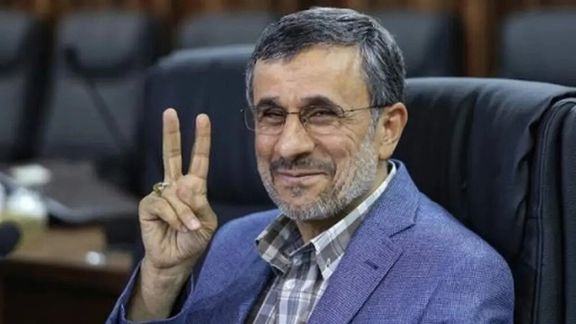
On Saturday, one day before the impeachment, Alirezabeigi said in a statement published on former President Mahmoud Ahmadinejad's Telegram channel that he had been summoned for questioning by both the Prosecutor's Office and the Board Supervising Lawmakers' Behavior. The channel presented long lists of the lawmakers who had received the car but blackened their names to avoid prosecution for possible libel.
In the meantime, while the controversy over impeachment continues, former government spokesman Ali Rabiei noted in a commentary in Etemad Online website that the campaign against financial corruption should be accompanied by structural reforms before being turned into security and judiciary projects.
Rabiei accused Iranian governments of failing to carry social projects forward. Interestingly, Rabiei himself has been a member of the government in most of the 43 years the Islamic Republic has been in power.

Researchers at the Lookout Threat Lab have discovered a new Android surveillance tool attributed to the Islamic Republic's Police (FARAJA).
The company that offers insight into mobile threats has been tracking a spyware named BouldSpy since March 2020, which configures the tool’s command and control (C2).
Since 2023, security and intelligence researchers have described the malware as an Android botnet and ransomware.
Lookout researchers evaluate that BouldSpy includes ransomware code, but it is unused and nonfunctional, indicating ongoing development or misdirection by the actor.
“BouldSpy has victimized more than 300 people, including minority groups such as Iranian Kurds, Baluchis, Azeris, and possibly Armenian Christian groups,” said Lookout in a statement.
It appears that the spyware was also used to monitor and counter illegal trafficking activities related to weapons, drugs, and alcohol.
To further monitor the target after release, FARAJA likely installs BouldSpy on devices obtained during detention, adds Lookout.
Many of the malware's activities took place during protests following the death in custody of Mahsa Amini in 2022.
“The first locations exfiltrated from the victims are, with few exceptions, concentrated near Iranian provincial police stations, Iranian Cyber Police stations, Law Enforcement Command facilities, and border control posts. Based on this, we theorize that a victim’s device is confiscated once detained or arrested, and then subsequently physically infected with BouldSpy.”
It is still not clear how many people were detained during the nationwide protests in Iran. While thousands of young and teenage protesters were arrested in street demonstrations, hundreds of political activists, journalists and writers or artists have also been detained.
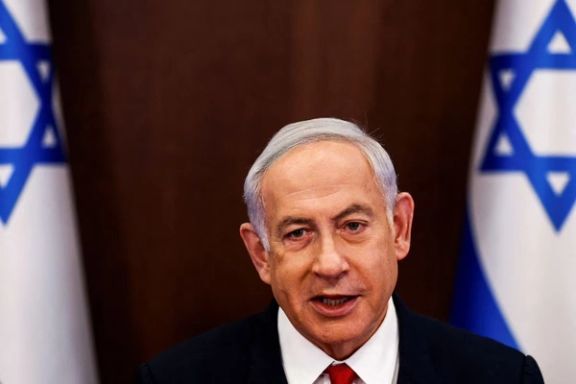
Israeli Prime Minister Benjamin Netanyahu said Sunday he would stop Iran from strangling the Jewish state with a "noose of terror."
Speaking at the weekly cabinet meeting, he said the country’s security personnel are “working on this matter around the clock … and we will continue to act both offensively and defensively against the aggression of Iran and its terrorist satellites”.
The Israeli Prime Minister's statements about the aggressions of the Islamic Republic come at a time when Iran’s foreign minister toured Lebanon’s border with Israel Friday during a visit to the Arab nation, and was documented looking out at the Jewish state his regime regards as an archenemy.
After meeting with Hezbollah Secretary General Hassan Nasrallah, Hossein Amir-Abdollahian took the tour along with several Lebanese parliamentarians and members of the Iranian-backed terror group.
“Positive developments in the region will lead to the collapse of the Zionist entity,” he said during his tour.
Mehr state news agency called Amir-Abdollahian's presence at the Israel-Lebanon border a "response" to the move by Israel's foreign minister, who visited Iran's borders during the opening of the country's embassy in Ashgabat, the capital of Turkmenistan.
Meanwhile, an Israeli air attack near the city of Homs hit Iranian targets early Saturday, while Syrian state media reported that some missiles were intercepted.
Meanwhile, Syrian Observatory for Human Rights, based in the United Kingdom, reported that Israeli missiles fired from warplanes destroyed a Hezbollah ammunition depot near Homs airport.

Iran’s rial hit its lowest point in one month on Monday, falling by 10 percent against the US dollar, as sanctions remain in place and the economy is in crisis.
The rial hit a low of 550,000 against the US dollar for the first time since April 1, when an apparent intervention by the Central Bank of Iran (CBI) had brought the rate down to around 500,000 rial for each dollar.
In early 2018, the rial was trading at around 40,000 when former US President Donald Trump decided to pull out of the JCPOA nuclear agreement and impose crippling sanctions on Iran. Since then, the rial has fallen by almost 14-fold.
A series of worker strikes have been underway since April 22, affecting energy, petrochemical, steel and other sectors, as the rial falls and inflation spikes.
Monthly salaries for ordinary workers that were equivalent to $220 one year ago are now around $120 in purchasing power.
An Iranian official said Sunday that workers’ pay covers expenses for just nine days of the month for a small family.
Negotiations in 2021 and 2022 to reach a new nuclear agreement reached a deadline last September, prompting markets to sell off rials. Since then, the currency has lost half its value.
In addition to the nuclear issue, Iran’s supply of weapons to Russia and its brutal and deadly crackdown on anti-government protesters in recent months have made further talks more difficult as the United States demands Iranian policy changes at multiple levels.
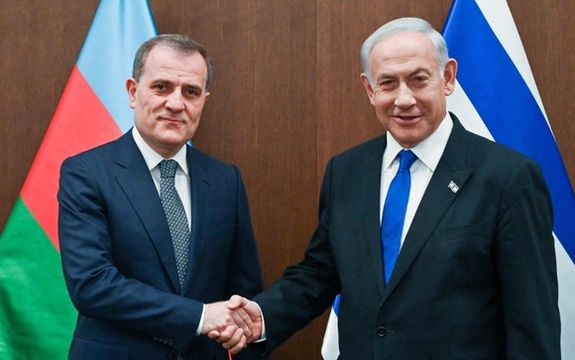
Prince Reza Pahlavi and Solidarity for a Free Iran have slammed a letter by 33 Knesset members to Israeli foreign minister Eli Cohen, threatening Iran's territorial integrity.
Following Cohen's recent state visit to Azerbaijan, the Knesset members in a letter delivered to Cohen’s office asked the Israeli government to “pressure Iran to stop oppressing the Azeri minority in northwest Iran” based on a request by the Jewish community in Azerbaijan.
Before a scheduled speech at the Anti-Defamation League, Pahlavi strongly condemnedthe action of the Israeli lawmakers.
“The verbal assault on Iran’s territorial integrity by 32 members of the Israeli parliament is completely unacceptable and a service to the interests of the anti-Iranian Islamic Republic regime.”
Also, in a statement published on Twitter Sunday, the diaspora political group (7th Aban Front in Persian) said the Knesset members’ letter regarding “the Azeri minority” in Iran is “a clear case of action against Iran's existence”.
“Solidarity for a Free Iran considers this letter a hostile act against the Iranian nation and strongly condemns it,” the statement said.
“It is noteworthy that the letter of these Knesset members is in sheer contradiction with the statements made by Israeli government officials regarding friendship between the two nations of Iran and Israel during the recent visit of Prince Reza Pahlavi,” Solidarity for Free Iran said.
Prince Reza Pahlavi, a leading opposition figure, had visited Israel earlier this month and met with Israeli officials including Prime Minister Benjamin Netanyahu. This was the first time a prominent Iranian political figure had paid a public visit to Israel.

The group also stressed its belief in friendly relations with all countries and fighting against “reactionary discourses such as antisemitism” in the post-Islamic Republic Iran and condemned the Iranian regime’s animosity toward Israel but added that they would not allow “any country or political group to take advantage of such principles to spread hate and contentiousness against the Iranian nation.
The Knesset members accused the Iranian regime of “carrying out a policy of cultural genocide by restricting the right of members of the Azeri minority to study and spread its heritage, to teach its language and even to register children with Azeri national names.”
Around a quarter of Iran’s population is Turki-speaking Azari (in Iran the word is Azari – not Azeri), with analysts and activists disagreeing over the closeness of their cultural-linguistic links to their neighbors to the north.
It should be noted that Supreme Leaser Ali Khamenei and many past and current high-ranking Iranian officials come from the Azari community.
The letter said the Jewish community of Azerbaijan is “very concerned” about the persecution of the said ethnic minority in Iran and stressed that the country of Azerbaijan is one of the most important strategic allies of Israel in the region.
“Obtaining international support as broad as possible for the national aspirations of the people of South Azerbaijan (term used by Baku for Iran’s Azarbaijan) will be a fatal blow to the Ayatollah regime, and establishment of the sovereign state of South Azerbaijan,” they wrote.
Supporting the separation of what they called South Azerbaijan from Iran would also be “an appropriate response on the level of political activism to the subversion of the Ayatollah regime” against Israel.
Tensions have been high between Tehran and Baku, an Israeli ally since November 2022 when both sides accused each other of engaging in terrorism and espionage. Tehran has also accused Baku of harboring Israeli intelligence and military elements that plan to use its territory in a possible attack against Iran’s nuclear facilities.
Solidarity for a Free Iran was founded by prominent political activists after a gathering of political and civil activists from the Iranian diaspora in Brussels in late October, less than three months after Mahsa Protests began and spread across the country.